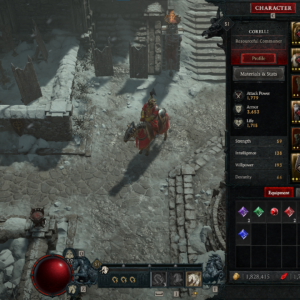
SIX NATIONS – The decision to pull out of a multi-million dollar agreement with Kearns International Ltd. for a waste incineration unit known as the Kearns Disintegrator Solid Waste Disposal System could cost the Six Nations community even more than anticipated.
According to a communication sent to Kearns in Nova Scotia by Six Nations Elected Council, the deal is officially off and any further discussions will be between the lawyers representing each party.
“I am disappointed that what we agreed to has gone the way it has,” said John Kearns in a telephone interview with the Two Row Times. “I still believe it has great potential to be a positive addition to for the Six Nations community. I believe I have more than fulfilled my obligations and have been more than fair in complying with Band Council’s wishes. I have turned the other cheek more than once but enough is enough. I have run out of both cheeks and patience. My experience at Six Nations has negatively affected my business interests and I don’t take that lightly.”
Derek Sandy is one of the growing number of opponents of the Kearns Disintegrator and was pleased to hear the news.
“Now how do we address the situation,” Sandy said. “Expand the recycling program plus the facility. We need to educate ourselves as a community on how to get our garbage problem under control, and how to clean up the dump that is back there. The incinerator is no more but our garbage continues to pile up. Let’s put our heads together.”
Kearns’ relationship with Six Nations was tarnished when complaints came in regarding local residents seeing and smelling toxic emissions from the Kearns machine during the testing phase of the demonstration unit Kearns brought to Six Nations to prove its mechanical components to Council.
That was to be followed by a fixed facility which, when completed and commissioned, includes a money back guarantee, should it not meet regulated guidelines.
Under growing community pressure, Council ordered the solid waste incineration machine to be shut down and insisted the demo unit be air quality tested by an outside, third party air quality firm out of Guelph, which is not connected with either Kearns or Band Council.
But Kearns is crying foul over those tests, which he says his 20-year-old demonstration unit was never equipped for.
Air “scrubbers” and other air quality add-ons, were intended be included in the permanently fixed unit that was to be built for Six Nations.
In the Kearns case, one such filtration system known as the “bag house” was set in place to complete the air exhaust ductwork system, but was not running while the machine was at Six Nations or during the tests.
“That was not a part of our agreement,” says Kearns. “The equipment delivered was as it is, because no testing was called for.”
According to Kearns, the contract agreement with Band Council included an understanding that air quality emissions testing was to be done, but only on the fully equipped permanent unit.
That understanding was echoed by Elected Council SAO, Dayle Bomberry, who oversaw the project and was involved in the entire process.
But Councilor Wray Maracle doesn’t remember it being that way at all. Maracle, who chaired the Solid Waste Adhoc Committee, otherwise known as S.W.A.C., says that as far as he knows, it was the demonstration machine that had to pass emissions tests to complete the transaction.
Opponents wonder why the machine was allowed to operate at all knowing the filtration system was not working.
Six Nations Elected Council SAO, Dayle Bomberry confirmed that part of the deal was that once the permanent unit was set up that it would be air quality tested and if that unit didn’t meet standards, the deal would be off at that point.
When asked if the original agreement include the testing of air quality on this demo machine he said, “No. The people asked for stack testing and that’s why the tests were done. The stack testing (result) wasn’t very positive in relation to what was actually tested inside the stack, but the dispersion modeling (conducted at the same time as the stack tests) indicates that in the monitored areas near the landfill, it met all the guidelines.”
He added that if the air cleaning equipment were functioning, the dispersion model would be even better.
Kearns informed the Two Row Times that his lawyers are now involved as he proceeds with breach of contract action against the Six Nations Elected Band Council following their decision to cancel the contract. As of this date, no such communications from their lawyers have been forthcoming, says Kearns.
Either way, it appears that there is a legal, potentially costly, storm blowing in from the east.






